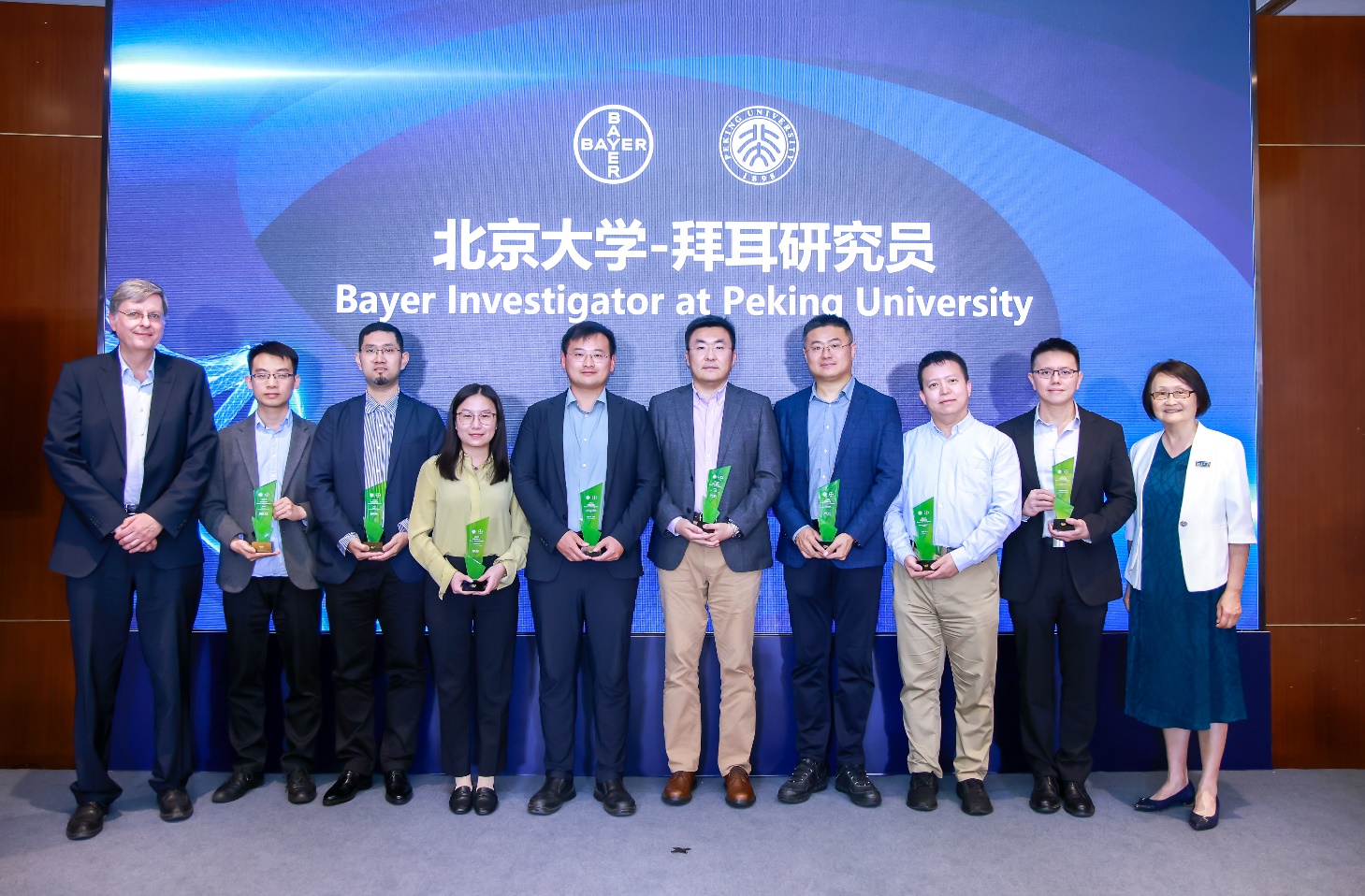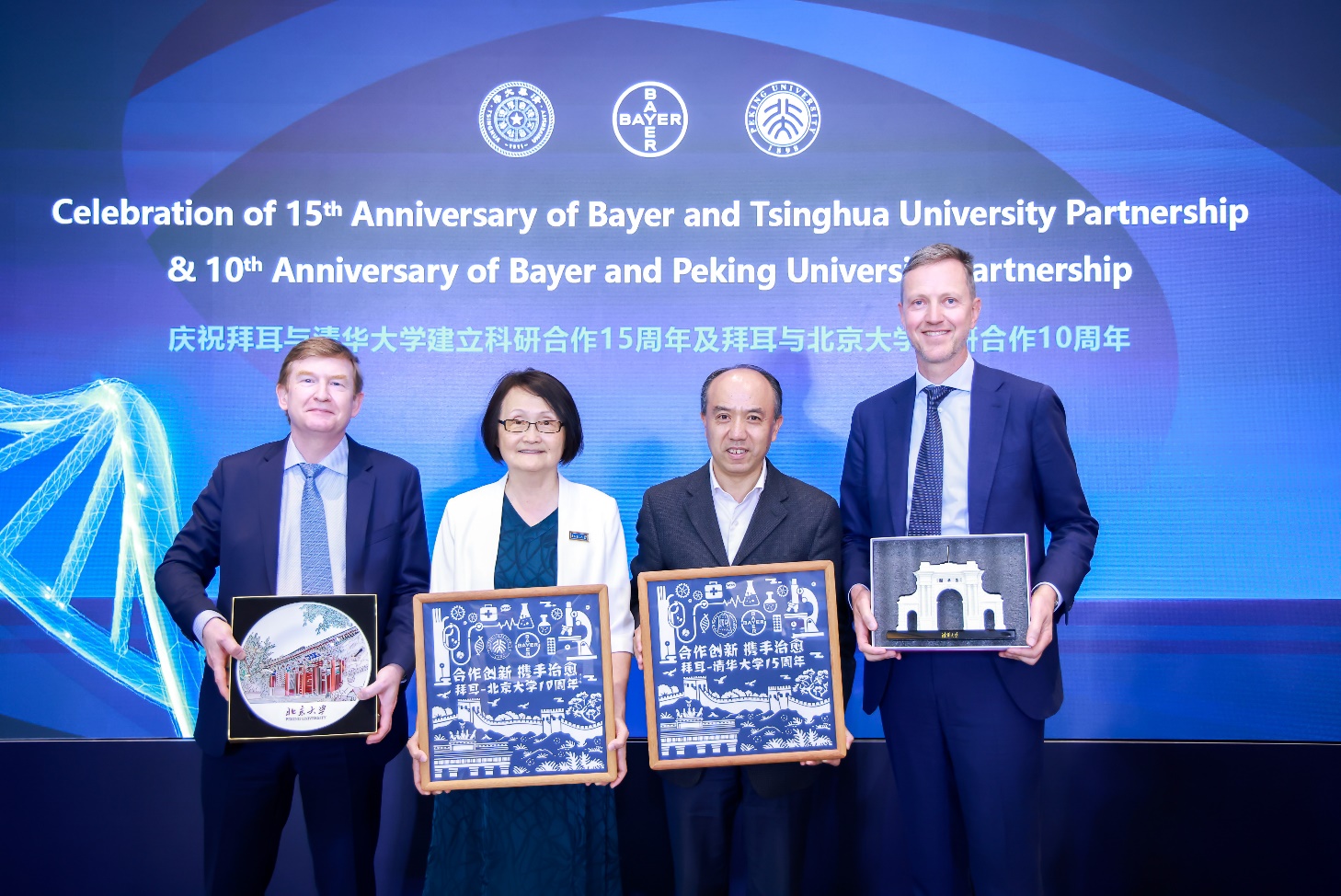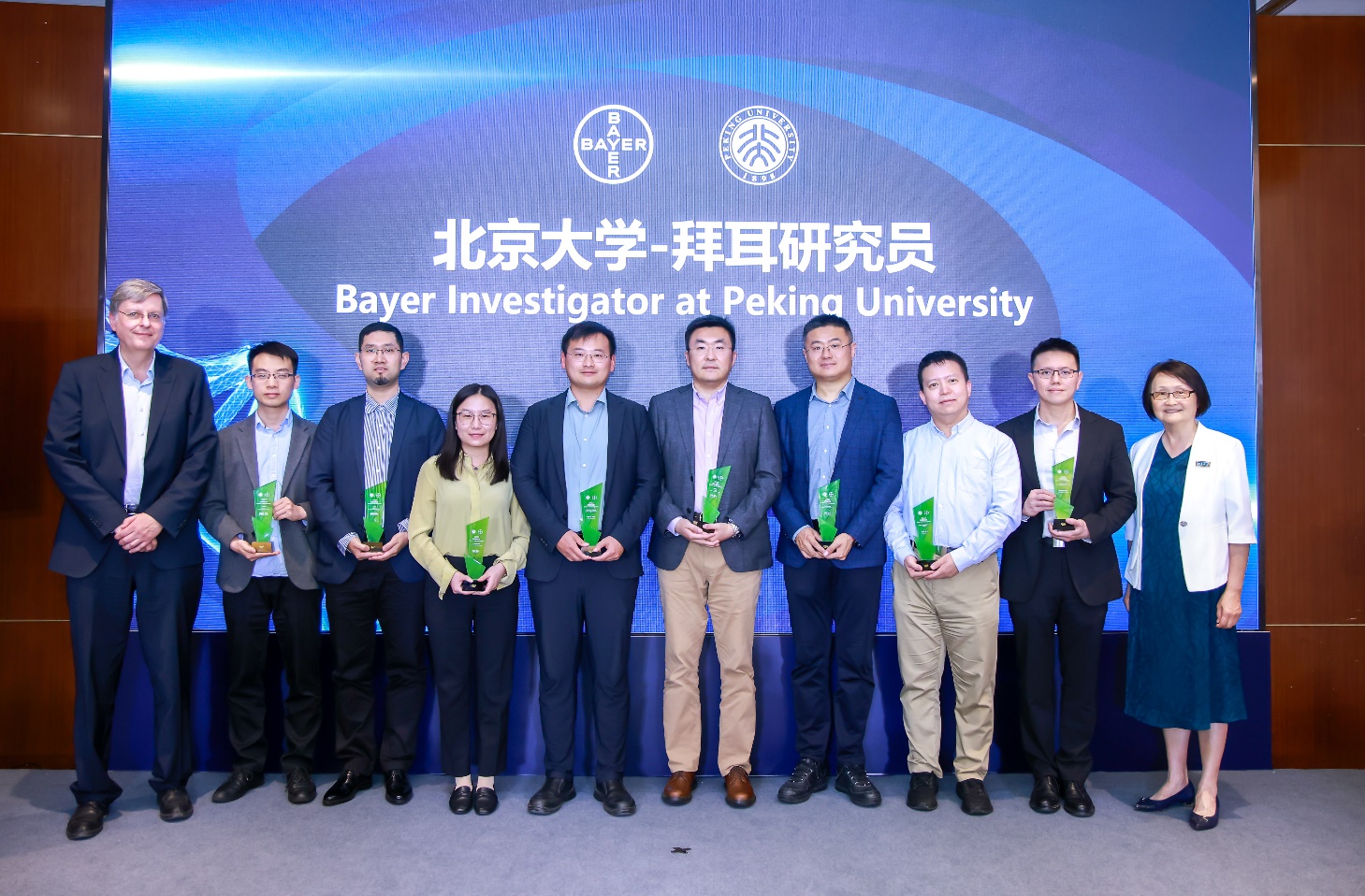Bayer China Academic Collaboration Award 2023 unveiled
May. 16, 2024
Beijing – Bayer, together with Tsinghua University and Peking University, recently unveiled the Bayer China Academic Collaboration Award 2023, including the Bayer Endowed Chair, Bayer Investigator, Bayer Microfunding, and Bayer Postdoc. The Bayer China Academic Collaboration Award aims to work closely with prestigious Chinese universities to honor and fund distinguished scholars with outstanding achievements in life sciences, medical science, and drug research and development. The award seeks to strengthen communication and coordination between the pharmaceutical industry and academia and to advance the application and translation of fundamental research to drug discovery and development, thus accelerating breakthrough innovations that will benefit patients.
This year, the scientist awarded the Bayer Endowed Chair is Professor Lei Liu from the Department of Chemistry at Tsinghua University. Meanwhile, a total of eleven scientists from Peking University and Tsinghua University became Bayer Investigators through the selection of the Joint Steering Committee (JSC), composed of Bayer experts and senior scholars from the top two universities in China. Professor Gang Liu from the School of Pharmaceutical Sciences, Professor Zhijie Chang, and Professor Mo Chen from the School of Medicine at Tsinghua University received funding from the Bayer Microfunding program for their scientific research projects. In addition, five outstanding young researchers from Peking University became Bayer Postdocs.
“We are delighted to honor Chinese scientists who have made remarkable achievements and contributions to scientific research. Long-established partnerships with Tsinghua University and Peking University demonstrate Bayer’s consistent commitment to driving innovation through external collaborations since the country has emerged as a key innovation source in life sciences,” said Dr. Juergen Eckhardt, head of pharmaceuticals business development and licensing and Leaps by Bayer. “We look forward to exploring innovative models and diversified approaches to collaborations in China to foster early innovation and accelerate the translation of scientific breakthroughs into innovative treatments, thus delivering meaningful impacts in healthcare for the benefit of patients.”
As part of its long-term commitment to China, Bayer attaches great importance to local scientific collaboration and strongly supports China's original innovation and new drug research and development. The company established long-term strategic partnerships with Tsinghua University in 2009 and Peking University in 2014. These partnerships pioneer scientific research collaborations between multinational pharmaceutical companies and local academic institutions in China, setting examples of the synergetic development and collaborations between industry and academia on advancing drug innovation.
Figure 1: Bayer celebrates the 15th anniversary of its partnership with Tsinghua University and the 10th anniversary of its partnership with Peking University.
“Over the years, research collaborations between Bayer, Tsinghua University, and Peking University have significantly advanced, and academic exchanges have been extensive and diverse. These partnerships exemplify collaborations between multinational companies and universities in life sciences and biomedicine,” said Hongwei Wang, professor of the School of Life Sciences and vice-president of Tsinghua University. He is a JSC member for Bayer Academic Collaborations in China and was awarded the Bayer Endowed Chair in 2018. “We hope to further enhance our strategic partnership with Bayer. It fosters the deep integration of industry and academia, strengthens the translation of scientific outcomes, actively promotes open innovation in science and technology, and continuously enhances connections between multinational companies and Chinese universities in the translation and application of fundamental research. Meanwhile, we expect to generate more impacts in cultivating talent to support high-level innovation. Upholding the scientific spirit of truth-seeking and exploration, we will continue to collaborate and innovate to solve global challenges and contribute to human life and health.”
“Since 2014, Peking University has collaborated with Bayer Health Sciences on advanced research, academic exchange, and talent recruitment. This partnership has led to significant achievements. Over the past decade, we have recruited 59 outstanding talents, with 17 benefiting from Bayer's support. Together, we have worked on nearly 30 research projects, resulting in impactful publications and international patent applications. Notably, a development from our joint project has progressed to phase 2 clinical trials,” said Hong Wu, chair professor of the School of Life Sciences, Peking University, and senior investigator of the Peking-Tsinghua Center for Life Sciences. Hong has also served as a JSC member for Bayer Academic Collaborations in China since 2014. “Peking University leverages all available resources, including global partnerships, to uphold its dedication to education and research. We look forward to continuing our strong alliance with Bayer as we push forward in advancing biomedical research for the improvement of human health in China and globally.”

Figure 2: Professor Wu Hong from the School of Life Sciences at Peking University and Dr. Ulrich Nielsch from Bayer, as representatives of the Joint Steering Committee, presentes the “Bayer Investigator” to Peking University winners.
Figure 3: Professor Wu Hong from the School of Life Sciences at Peking University and Dr. Ulf Brueggemeier from Bayer, as representatives of the Joint Steering Committee, presentes the “Bayer Postdoc” to Peking University winners.
As of April 2024, more than 200 eminent Chinese scientists and young scholars have won Bayer Endowed Chair and Bayer Investigator awards. In November 2023, Professor Songhai Shi and Professor Ning Yan, who have been awarded the Bayer Endowed Chair, and Professor Zemin Zhang, who has been awarded the Bayer Investigator, became the latest elected academicians of the Chinese Academy of Sciences, playing a pivotal role in driving scientific progress, fostering innovation, and contributing to the development of China’s scientific community.
So far, Bayer and these two academic partners have carried out more than 100 research collaboration projects, including the discovery and structural analysis of novel targets, pathogenesis and drug mechanism of action research, drug screening, efficacy evaluation, and the exploration of new modalities, new synthetic methods, and innovative formulations, covering multiple therapeutic areas, such as oncology and cardiovascular diseases.
About Bayer
Bayer is a global enterprise with core competencies in the life science fields of health care and nutrition. In line with its mission, “Health for all, hunger for none,” the company’s products and services are designed to help people and the planet thrive by supporting efforts to master the major challenges presented by a growing and aging global population. Bayer is committed to driving sustainable development and generating a positive impact with its businesses. At the same time, the group aims to increase its earning power and create value through innovation and growth. The Bayer brand stands for trust, reliability, and quality throughout the world. In fiscal 2023, the group employed around 100,000 people and had sales of 47.6 billion euros. R&D expenses before special items amounted to 5.8 billion euros. For more information, go to www.bayer.com.
Source: Bayer; School of Life Sciences, Peking University


